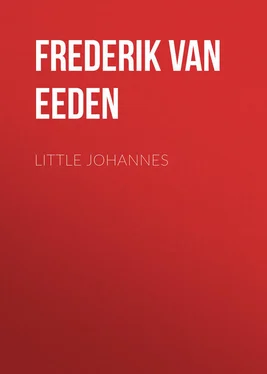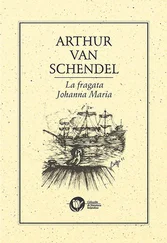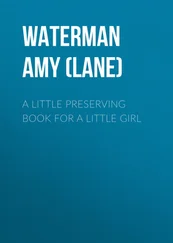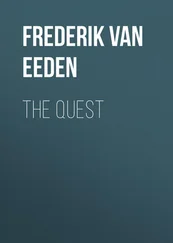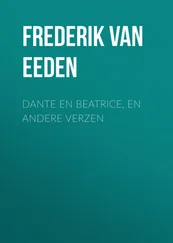'Mouse, mouse; do not go away. Ask Windekind what I am to do with my little key. I have tied it round my neck, next my skin. But on Saturday I am tubbed, and I am so afraid that it will be found. Tell me, where can I hide it?'
'Underground, always underground, that is always safest. Shall I keep it for you?'
'No, not here in school.'
'Then bury it out in the sand-hills. I will tell my cousin the field-mouse that he must take care of it.'
'Thank you, little mouse.'
Tramp, tramp! In came the master. While Johannes was dipping his pen the mouse had vanished. The master, who wanted to go home, let Johannes off the other forty-eight lines.
For two days Johannes lived in constant dread. He was kept strictly within sight, and had no opportunity of slipping off to the sand-hills. It was already Friday, and still the precious key was about his neck. The following evening he would inevitably be stripped; the key would be discovered and taken from him – his blood turned cold at the thought. He dared not hide it in the house or garden – no place seemed to him safe enough.
Friday afternoon, and dusk was creeping down! Johannes sat at his bedroom window, gazing with longing at the distance, over the green shrubs in the garden to the downs beyond.
'Windekind, Windekind, help me!' he whispered anxiously.
He heard a soft rustling of wings close at hand, he smelt the scent of lilies of the valley, and suddenly heard the sweet, well-known voice. Windekind sat by him on the window-sill, waving the bells of a lily of the valley on their slender stems.
'Here you are at last!' cried Johannes; 'I have longed for you so much!'
'Come with me, Johannes, we will bury your little key.'
'I cannot,' said Johannes sadly.
But Windekind took him by the hand and he felt himself wafted through the still evening air, as light as the wind-blown down of a dandelion.
'Windekind,' said Johannes, as they floated on, 'I love you so dearly. I believe I would give all the people in the world for you, and Presto into the bargain.'
'And Simon?'
'Oh, Simon does not care whether I love him or not. I believe he thinks it too childish. Simon loves no one but the fish-woman, and that only when he is hungry. Do you think that Simon is a common cat, Windekind?'
Конец ознакомительного фрагмента.
Текст предоставлен ООО «ЛитРес».
Прочитайте эту книгу целиком, купив полную легальную версию на ЛитРес.
Безопасно оплатить книгу можно банковской картой Visa, MasterCard, Maestro, со счета мобильного телефона, с платежного терминала, в салоне МТС или Связной, через PayPal, WebMoney, Яндекс.Деньги, QIWI Кошелек, бонусными картами или другим удобным Вам способом.
Part of what follows I have already stated in a reprint of Perrault's Popular Tales , Clarendon Press, Oxford, 1888.
In forty-one volumes, Paris, 1785-89.
There are complete English translations of the eighteenth century. Many of the stories have been retold by Miss M. Wright, in the Red and Blue Fairy Books .
I am unacquainted with the date of composition of this story about a Ring more potent than that of Gyges. (It is printed in the second volume of Dialogues des Morts Paris, 1718).
From one of these tales by Caylus the author, who but recently made their acquaintance, finds that he has unconsciously plagiarised an adventure of Prince Prigio's.
The child of the bindweed.
